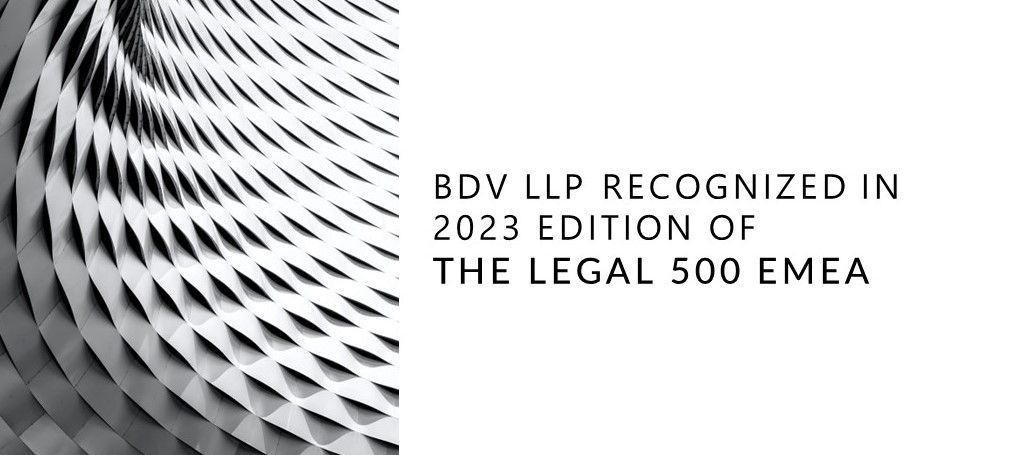[vc_row equal_columns=”true”][vc_column width=”3/4″][vc_column_text]European Commission recently published its decision by which it imposed a record fine of EUR 124.5 million on the cable and telecommunications company Altice in April earlier this year, for the so-called “gun-jumping” in its acquisition of the Portuguese telecommunications operator PT Portugal.
EU merger rules require that companies notify the European Commission of the planned mergers which fall within the scope of the EU Merger Regulation (the “EUMR”) (the “Notification Requirement”) and do not implement them until cleared by the European Commission (the “Standstill Obligation”). The purpose of the standstill obligation serves to preventing the potentially irreparable negative impact of transactions on the market. In accordance with EUMR, the European Commission may impose fines of up to 10% of the aggregated turnover of companies which intentionally or negligently breach such obligations.
In its decision, the European Commission found that Altice breached both the notification and the standstill obligations. The Commission concluded that Altice’s contractual rights under the acquisition agreement, combined with pre-closing interaction with PT Portugal, amounted to de facto early implementation of the transaction which is prohibited by the EU merger rules.
Background
In February 2015, Altice notified the European Commission of its intention to acquire PT Portugal, which was controlled by the Oi, the Brazilian telecommunications operator. The transaction was conditionally cleared by the European Commission in April 2015, subject to the divestment of Altice’s subsidiaries in Portugal at the time, Oni and Cabovisão, since the subsidiaries were competitors of PT Portugal for telecommunications services in Portugal.
In May 2017, the European Commission addressed a Statement of Objections to Altice raising its concerns that Altice implemented its acquisition of PT Portugal before obtaining the European Commission’s clearance, and in some cases, even before its notification of the merger.
Decisive influence and information exchange
In accordance with the transaction agreement, Altice was granted veto rights over decisions concerning PT Portugal’s ordinary business. Altice exercised its rights in certain cases, for example by giving PT Portugal instructions on how to carry out a marketing campaign.
Altice also requested and received commercially sensitive information about PT Portugal. The operational and competitively sensitive information was exchanged between the parties without any confidentiality agreements in place.
In its decision, the European Commission states “that having a degree of oversight over agreements which a target can enter into, and the commitments it can make, between signing and closing may be justified in order to preserve the value of a target, for example, to preserve the perimeter of the business or to guard against commitments of such magnitude that the value of the business could be affected. However, the Commission considers that having a veto right over almost all commercial action with a low monetary threshold in the context of the target’s business goes beyond what would be necessary to guard against material changes to a target’s business for the purposes of preserving its value. In particular, the European Commission considers that issues falling within a target’s ordinary course of business are unlikely to be relevant to preserving the value of the target’s business.”
The European Commission concluded that the range of agreements and actions over which Altice had a veto right was so broad that it gave Altice the possibility to exercise decisive influence over PT Portugal.
The decision demonstrates that certain veto rights, when going beyond what is necessary for the preservation of the value of the target company, may amount to gun jumping. Examples of such veto rights found in this decision are i) veto rights in relation to commercial policy, ii) the possibility to influence the appointment of the target’s senior management staff and iii) veto rights over nearly all commercial action with a low monetary threshold in the context of the target’s business.
Other merger procedural cases
In May 2017, the European Commission fined Facebook EUR 110 million for providing incorrect or misleading information during the European Commission’s 2014 investigation of Facebook’s acquisition of WhatsApp. The European Commission issued a clearance decision in October 2014, approving the transaction under the EU Merger Regulation. Despite the previous fine, the European Commission gave a clearance since its decision was based on various elements going beyond those linked to the incorrect or missing information.
In July 2017, the Commission sent three separate Statements of Objections, alleging breach of EU merger rules: one to General Electric, one to Merck and Sigma-Aldrich for allegedly providing incorrect or misleading information and one to Canon for allegedly implementing a merger before notification and clearance. These investigations are ongoing.
Conclusion – Implications on SPAs
While the buyers can impose obligations on the sellers with the aim of securing the value of the target company, the stakeholders need to carefully consider the gun jumping rules when drafting the share purchase agreements, disclosing confidential information, as well as during other pre-closing interactions.
The pre-closing oversight over agreements which a target may enter into, and the commitments it can make must not go beyond what is necessary for the preservation of the value of a target and cannot result in acquiring decisive influence over the target company prior to European Commission’s merger clearance.
With this decision, it appears the European Commission once again safeguarded the EU merger control system, sending a strong message to merging companies of the importance of complying with EU merger procedural rules, which shall also reflect the application of local merger control rules within Member States.[/vc_column_text][/vc_column][vc_column width=”1/4″][vc_column_text]
For more information
please contact
[/vc_column_text][vc_column_text]
[/vc_column_text][vc_column_text]
[/vc_column_text][vc_empty_space][vc_wp_custommenu nav_menu=”87″ el_class=”objavamenu” title=”Related Areas”][/vc_column][/vc_row]







